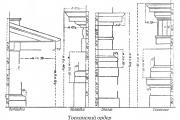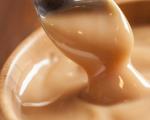Instructions for medical use
medicine
A nicotinic acid
Tradename
A nicotinic acid
International nonproprietary name
A nicotinic acid
Dosage form
Solution for injection 1%, 1 ml
Compound
1 ml of solution contains
active substance -
nicotinic acid 10 mg,
Excipients: sodium bicarbonate, water for injection.
Description
Transparent, colorless liquid.
Pharmacotherapeutic group
Lipid-lowering drugs. Hypocholesterolemic and hypotriglyceridemic drugs. Nicotinic acid and its derivatives .
A nicotinic acid.
ATX code C10AD02
pharmachologic effect
Pharmacokinetics
Nicotinic acid is rapidly absorbed when administered parenterally. Evenly distributed throughout organs and tissues. Inactivated mainly by methylation and less by conjugation. Partially biotransformed in the liver with the formation of N-methylnicotinamide, methylpyridonecarboxamides, glucuronide and a complex with glycine. Half-life (T 1/2) - 45 minutes. It is excreted from the body by the kidneys in unchanged form and in the form of metabolites. Renal clearance depends on the concentration of nicotinic acid in the blood plasma and may decrease at high plasma concentrations.
Pharmacodynamics
The structure of nicotinic acid is close to nicotinamide.
Nicotinic acid and its amide play a significant role in the life of the body: they are prosthetic groups of enzymes - codehydrase I (diphosphopyridine nucleotide - NAD) and codehydrase II (triphosphopyridine nucleotide - NADP), which are hydrogen carriers and carry out redox processes. Codehydrase II is also involved in phosphate transport.
Nicotinic acid replenishes the deficiency of vitamin PP and has a vasodilating effect. Participates in the regulation of tissue respiration, fat metabolism, reduces total cholesterol and low-density lipoproteins (especially triglycerides).
Indications for use
- prevention and treatment of pellagra (vitaminosis RR)
As part of complex therapy: vascular spasm of the extremities (obliterating endarteritis, Raynaud's disease), neuritis of the facial nerve, ischemic cerebrovascular accidents
Directions for use and doses
Nicotinic acid is administered to adults subcutaneously, intramuscularly or slowly intravenously.
For intravenous jet administration a single dose of the drug is diluted in 10 ml of 0.9% sodium chloride solution, administered no less than 5 minutes (no faster than 2 mg of nicotinic acid in 1 minute).
For intravenous drip administration a single dose of the drug is diluted in 100-200 ml of 0.9% sodium chloride solution, the rate of administration is 30-40 drops per minute.
Subcutaneous and intramuscular injections are painful.
For pellagra, a 1% solution of 1 ml is administered intravenously or intramuscularly 1-2 times a day for 10-15 days.
In case of ischemic cerebrovascular accident, 1 ml of 1% solution is administered intravenously (slowly).
For other indications prescribed subcutaneously or intramuscularly at 10 mg (1 ml) 1 time per day for 10-15 days. It is possible to add to the infusion solution: 10 mg (1 ml) of nicotinic acid per 100-200 ml of infusion solution.
Higher doses for intravenous administration: single - 100 mg (10 ml), daily - 300 mg (30 ml).
Side effects
Hyperemia of the face and upper half of the body with a sensation
tingling and burning (in people with hypersensitivity)
Hives, skin rash, itching
Dizziness, feeling of a rush of blood to the head, headache
Orthostatic hypotension, collapse (with rapid intravenous administration)
With long-term use of large doses
-
dry skin, exfoliative dermatitis
- anorexia, vomiting, diarrhea
- liver dysfunction, incl. fatty liver, jaundice
- arrhythmias
- paresthesia
- hyperuricemia
- hyperpigmentation, hyperkeratosis
- decreased glucose tolerance
- hyperglycemia
- transient increase in aspartate aminotransferase activity,
lactate dehydrogenase, alkaline phosphatase
- irritation of the mucous membrane of the gastrointestinal tract.
-
asthenia
-
pain at the site of subcutaneous and intramuscular injections.
Contraindications
Hypersensitivity to nicotinic acid
Severe forms of arterial hypertension
Atherosclerosis (for intravenous injections)
Peptic ulcer of the stomach and duodenum (at the stage
exacerbation)
Severe liver dysfunction: hepatitis, liver cirrhosis
Recent myocardial infarction
Decompensated diabetes mellitus
Gout and hyperuricemia
Pregnancy, lactation period
Children under 18 years of age
Drug interactions
Oral contraceptives and isoniazid reduce the conversion of tryptophan to niacin and thus may increase the need for niacin.
Nicotinic acid reduces effectiveness and toxicity barbiturates, antituberculosis drugs, sulfonamides. When used together with sulfonylureas, it may increase blood glucose levels. Nicotinic acid also reduces the toxicity of neomycin and prevents the decrease in the concentration of cholesterol and high-density lipoproteins induced by it.
Antibiotics may increase skin redness caused by nicotinic acid.
Acetylsalicylic acid reduces the effect of skin redness that occurs under the influence of nicotinic acid.
Lovastatin, pravastatin Due to the increased risk of adverse reactions, it is not recommended to combine it with nicotinic acid.
Caution must be exercised when combined with antihypertensive drugs(possible increased hypotensive effect), anticoagulants, acetylsalicylic acid(due to the risk of developing hemorrhages).
The drug potentiates the effect fibrinolytic agents, antispasmodics and cardiac glycosides, toxic effects of alcohol on the liver.
Do not mix with thiamine chloride solution (thiamine is destroyed).
special instructions
Before using the drug, you should consult your doctor.
Since long-term use can lead to fatty liver disease, to prevent the latter, patients’ diets include foods rich in methionine or prescribe methionine and lipoic acid. During treatment it is necessary to monitor liver function. If hypersensitivity to the drug occurs (except when used as a vasodilator), it can be replaced with nicotinamide.
Carefully the drug is used for hyperacid gastritis, gastric and duodenal ulcers (outside the acute stage).
The use of the drug may lead to an increase in the need for insulin in patients with diabetes. It is not advisable to use for the correction of dyslipidemia in patients with diabetes mellitus.
It is necessary to regularly monitor glucose due to a possible decrease in glucose tolerance, as well as serum uric acid levels due to a possible increase as a result of long-term therapy.
Carefully prescribed for glaucoma, bleeding, arterial hypotension, impaired liver and kidney function, liver diseases and a history of impaired liver function, diabetes mellitus, heart rhythm disturbances, migraines, alcohol abuse.
Features of the effect of the drug on the ability to drive a vehicle or potentially dangerous mechanisms
Considering the side effects of the drug, caution should be exercised when driving vehicles and moving machinery.
Overdose
Symptoms: increased side effects from the cardiovascular system - arterial hypotension, headache, possible loss of consciousness, dizziness, feeling of a rush of blood to the head.
Treatment: drug withdrawal, detoxification therapy, symptomatic treatment. There is no specific antidote.
Release form and packaging
1 ml in neutral glass ampoules for syringe filling or imported, or sterile ampoules for syringe filling imported, with a break point or break ring.
A label made of label or writing paper is affixed to each ampoule.
5 or 10 ampoules are packed in blister packs made of polyvinyl chloride film and aluminum or imported foil.
Outline packages are placed in boxes made of cardboard or corrugated cardboard.
Approved instructions for medical use in the state and Russian languages are placed in group packaging with contour packaging. The number of instructions is calculated according to the number of boxes or packages.
Storage conditions
Store in a place protected from light, at a temperature not exceeding 30 o C.
Keep out of the reach of children!
Shelf life
Do not use after expiration date.
Conditions for dispensing from pharmacies
On prescription
Manufacturer
Registration Certificate Holder
JSC "Khimpharm", Republic of Kazakhstan
Address of the organization that accepts claims from consumers regarding the quality of products (products) on the territory of the Republic of Kazakhstan
JSC "Khimpharm", Republic of Kazakhstan
Shymkent, st. Rashidova, 81
Phone number 7252 (561342)
Fax number 7252 (561342)
E-mail address [email protected]
Nicotinic acid is a vasodilator and antipellagritic agent.
Release form and composition
- Tablets (10 pcs. in blister packs; 10 pcs. in blister packs, 5 packs in a cardboard pack; 50 pcs. in dark glass, polymer or polypropylene jars; 50 pcs. in dark glass, polymer or polypropylene jars cans, 1 can in a cardboard pack);
- Solution for injection (1 ml in ampoules, 5 ampoules in blister packs, 1 or 2 packs in a cardboard box).
Active ingredient: nicotinic acid:
- 1 tablet – 50 mg;
- In 1 ml of solution – 10 mg.
Indications for use
- Hypo- and vitamin deficiency PP;
- Hartnup's disease (a hereditary disease characterized by impaired absorption of certain amino acids, including tryptophan).
Nicotinic acid is also used as part of combination therapy for the following diseases:
- Ischemic stroke;
- Neuritis of the facial nerve;
- Obliterating diseases of the vessels of the extremities (Raynaud's disease and obliterating endarteritis);
- Diabetes mellitus and its complications, such as microangiopathy and diabetic polyneuropathy.
Contraindications
Absolute:
- Gout;
- Atherosclerosis;
- Cirrhosis of the liver;
- Hepatitis;
- Hyperuricemia;
- Exacerbation of peptic ulcer of the stomach and duodenum;
- Decompensated diabetes mellitus;
- Hypersensitivity to nicotinic acid.
Relative (the drug should be used with extreme caution due to the risk of complications):
- Peptic ulcer of the stomach and duodenum in remission;
- Hyperacid gastritis;
- Arterial hypotension;
- Glaucoma;
- Hemorrhages;
- Childhood;
- Pregnancy;
- Lactation.
Directions for use and dosage
Pills
The tablets should be taken orally after meals.
- Prevention: adults – 15-25 mg, children – 5-20 mg per day;
- Treatment of pellagra: adults – 100 mg 2-4 times a day, children – 5-50 mg 2-3 times a day;
- Other diseases: adults - 20-100 mg, with hypercholesterolemia the daily dose can be increased to 2000-3000 mg, children - 5-30 mg 2-3 times a day.
Injection
For pellagra, 1 ml is administered intramuscularly, intravenously or subcutaneously 2-3 times a day for a course of 10-15 days.
For ischemic stroke, nicotinic acid is administered slowly intravenously at a dose of 10 mg.
For other indications, 10 mg is usually prescribed 1-2 times a day for 10-15 days.
The maximum permissible single dose for adults is 100 mg, daily – 300 mg.
For Hartnup disease, the daily therapeutic dose can vary from 40 to 200 mg.
Side effects
- Cardiovascular system: hyperemia of the skin of the face and upper half of the body, rush of blood to the scalp, headache, feeling of heat, orthostatic hypotension, collapse; with rapid intravenous administration - dizziness, significant decrease in blood pressure;
- Central and peripheral nervous system: dizziness, paresthesia;
- Metabolism: with long-term use - asthenia, decreased glucose tolerance, hyperuricemia, increased blood levels of aminotransferase, lactate dehydrogenase, alkaline phosphatase;
- Digestive system: with long-term use – fatty liver;
- Other: allergic reactions (skin itching, skin rash, urticaria, wheezing);
- Local reactions with intramuscular and subcutaneous administration: pain.
special instructions
Liver function should be monitored during treatment. To prevent complications, include foods containing methionine (for example, cottage cheese) in your diet, or take lipoic acid, methionine and other lipotropic drugs.
Drug interactions
- Sulfonylurea: increases blood glucose levels;
- Lovastatin: risk of developing myopathy;
- Neomycin: its toxicity is reduced, the decrease in the concentration of high-density lipoproteins and cholesterol induced by it is prevented.
Particular caution should be exercised in the case of simultaneous use of ascorbic acid, anticoagulants and antihypertensive drugs.
Nicotinic acid, injections, what they are prescribed for - this question often arises. The name may be a little misleading, but it is actually a very useful substance. It is actively used in medicine, because the so-called nicotine is a vitamin-like substance that has a beneficial effect on the body.
The benefits of nicotinic acid injections
The drug has many positive properties and its health benefits are impressive. If the body contains nicotine in sufficient quantities, then all organs and systems in it function clearly and correctly. Nicotinic acid, injections, what are they prescribed for? It is used for different purposes - for example, for:
- restoration of impaired blood supply in certain areas of the body and brain;
- normalization of metabolic processes;
- normalization of lipid and carbohydrate metabolism;
- relieving detoxification symptoms during;
- expansion and strengthening of blood vessels;
- control of oxidative processes;
- speedy conversion of sugar into energy;
- improving bowel function;
- memory improvements;
- strengthening the immune system;
- correction of liver function;
- putting the nervous system in order;
- stabilization of hormonal levels;
- control of hemoglobin synthesis.
Among other things, nicotine improves sleep, stabilizes blood cholesterol levels, takes part in the production of gastric juice and controls some functions of the digestive tract. By understanding what nicotinic acid helps with, and for what purpose the injections are prescribed, you can understand why doctors chose injections. Everything is simple with this - this way the drug penetrates the body faster and is distributed more evenly. In addition, the injections help prevent irritation of the gastric mucosa.
Nicotinic acid injections - indications

The substance can be taken both for treatment and as a prophylactic. Nicotinic acid, injections, what are they prescribed for? One of the most common indications is a lack of vitamin PP - pellagra. The drug is effective for diseases of the cardiovascular system. It helps dissolve blood clots. Thanks to this, areas of blood vessels that were blocked open up.
Before you start using nicotinic acid, injections, the instructions for its use must be studied. From it you can find out that the medicine is also prescribed for:
- spasms of blood vessels (limbs, brain, kidneys...);
- hypoacid gastritis;
- ulcers and wounds of various localizations that do not heal over a long period of time;
- complications of diabetes;
- liver diseases;
- intoxications of various origins.
Nicotinic acid injections for osteochondrosis
This disease occurs when the cartilage in the spinal discs does not receive enough nutrition. As a result, structural changes begin to occur in them, and they become thinner. At the same time, the condition of the bone tissue deteriorates, which becomes deformed and becomes covered with growths in some places. Nicotinic acid, injections, what are they prescribed for, in this case - how can they help? Very fast and efficient!
The injections begin to work almost immediately.
- They relieve the main symptoms of osteochondrosis, eliminate dizziness, restore the processes of supplying tissues and organs with nerve cells, and normalize the general condition.
- Nicotine affects not only the general physical, but also the mental state of a person - the drug gives vigor, improves vitality, and normalizes sleep.
- Injections of nicotinic acid, their beneficial property, accelerates blood microcirculation in soft tissues, thereby reducing pain, and the regenerating properties of the drug help to significantly accelerate the process of restoration of damaged cartilage tissue, muscles, ligaments, and vessel walls.
- Among other things, nicotine can normalize oxygen metabolism and activate oxidative processes.
Nicotinic acid for hair - injections

This substance is often found in hair care products.
- Nicotinic acid injections perfectly moisturize curls, enhance their growth, prevent hair loss and fight dandruff.
- The effect is due to the vasodilating property of the product, due to which blood flow improves and the hair follicles begin to receive more nutrients.
We have sorted out nicotinic acid, hair injections, and what they are prescribed, but you also need to know how to use the drug correctly. To make your hair healthier and stronger, use the product for a month. Every day, the contents of one ampoule are applied to clean curls. Treatment can be done by hand or using a syringe without a needle. If 1 ml is not enough, you can use a second ampoule at a time, but no more.
There is no need to wash off the nicotine mask. Immediately after the procedure, goose bumps, a burning sensation, and redness may appear. This phenomenon is normal - it means that the remedy has begun to work. Another thing is headache, itching and rash. Such symptoms indicate individual intolerance and that hair treatment with nicotinic acid should be stopped. Those for whom the therapy is suitable will notice a growth of up to 3 centimeters in their curls within a month.
Nicotinic acid - injections for weight loss
Every body needs nicotinic acid. The optimal amount is up to 20 milligrams per day. You can get it from food - meat and some plant products. A deficiency of the substance has a negative effect on health. This leads to a lack of serotonin, and the body tries to compensate for the deficiencies of the latter by demanding high-calorie foods - cakes, buns, sweets.
How do nicotinic acid injections help you lose weight? Of course, she is not a fat burner. That is, just injections cannot cope with extra pounds, but they can:
- speed up processes; force gastric juice to be produced more actively;
- injections contribute to the production of such an important substance.
Simply put, nicotine will discourage you from eating unhealthy, fatty, high-calorie foods, help you stick to a proper diet, and enhance your metabolism.
Nicotinic acid, injections - instructions
To get the most from the drug, it must be used correctly. The regimen of nicotinic acid injections must be strictly followed, and it should be selected by a specialist. The standard scheme may not suit everyone. During treatment, it is very important to take into account all the individual characteristics of the body. Otherwise, therapy will not help, or even harm and worsen the condition.
Nicotinic acid - dosage (injections)

The doctor should calculate the dosage and number of necessary injections per day. He also makes the decision to increase or decrease the dose. According to the standard, nicotinic acid, an injection solution, is injected into the body at a rate of 0.1 grams 2 - 3 times a day. If the patient tolerates this treatment well, the dosage may increase to 5 grams. This amount of the drug is usually prescribed for atherosclerosis or serious problems with fat metabolism.
How to give nicotinic acid injections intramuscularly?
The drug nicotinic acid, injections, are given slowly. To ensure that no traces remain on the body after the procedure - irritation, rashes, wounds - doctors use substances such as Sodium Nicotinate or Nicotinamide. There are different methods of administering injections:
- intramuscular;
- intradermal (it is chosen when it is necessary to compensate for the lack of vitamins);
- intravenous (for this method, a 1% solution is diluted in saline).
Nicotinic acid - a painful injection or not?
Bad news, but it's true. The answer to the question whether an injection of nicotinic acid is painful or not is positive. When administered subcutaneously and intramuscularly, the patient feels very severe pain and burning. After the procedure, the skin turns red, some people develop a fever, but this is an absolutely normal reaction of the body. It’s worse if the injection has no consequences. In this case, you can suspect the presence of problems with blood circulation.
Nicotinic acid - injections and alcohol - compatibility

Another advantage of nicotine is that it can prevent ethanol poisoning - if you take it 10 - 12 hours before drinking alcohol, but it is undesirable for the substances to be in the body at the same time. Strong drinks neutralize the effect of the medicine, and it turns out that nicotinic acid and intramuscular injections were used in vain. In addition, ethanols increase the risk of adverse reactions. The best option is to give injections a few hours after alcohol enters the body.
Contraindications for nicotinic acid injections
Before starting a course of injections, you need to consult with a specialist and find out whether there are any contraindications to the use of the drug. Intramuscular injections of nicotinic acid are contraindicated for:
- gout;
- severe arterial hypertension;
- severe form of atherosclerosis;
- obvious violations of liver functions;
- stomach/duodenal ulcer;
- arrhythmias;
- sinus tachycardia;
- nephrosclerosis;
- any inflammation;
- allergies to nicotine.
Nicotinic acid has several medicinal properties. It dilates blood vessels, improves blood circulation, and regulates redox processes. Nicotinic acid is included in the mandatory treatment program for many pathologies, including acute and chronic osteochondrosis.
Composition and pharmacological action
Nicotinic acid (synonyms: vitamin PP, vitamin B3, niacin) belongs to the group of drugs that affect tissue metabolic processes. This is a vitamin preparation, but in its pharmacological action it is not inferior to the action of medicinal drugs.
Nicotinic acid is found in its natural form in vegetables and fruits, fish, dairy products and cereals. For a healthy person, vitamin intake from foods is sufficient. But with illnesses, the need for it increases sharply.
Used for medicinal purposes, preparations with nicotinic acid dilate blood vessels, increase blood fluidity, stabilize blood cholesterol levels, and prevent blood clots.
Most often, nicotinic acid is prescribed for neurological diseases. This is one of the vitamin preparations with a healing effect. The introduction of vitamin PP has a beneficial effect on nerve cells.

All forms of drug release
Under the influence of nicotinic acid, the speed of transmission of nerve impulses changes, the process of regeneration of nerve tissue improves, and blood pressure levels return to normal.
Due to the dilation of blood vessels, blood flows into the pathological focus, which accelerates the healing and regeneration process.
Niacin is an activator of enzymatic processes, a component for the formation of sex hormones (estrogen, testosterone, progesterone).
Preparations based on nicotinic acid are included in the treatment program for removing toxic substances from the body.
Regular maintenance therapy with nicotinic acid is indicated for patients with chronic headaches and migraine attacks.
The drug is available in the form of tablets and 1% injection solution.
Indications for use
For a healthy person, the daily requirement of nicotinic acid is about 25 mg. In what cases is it necessary to increase the daily requirement:
- with increased physical and mental activity;
- with increased neuropsychic stress;
- if professional activity is associated with harmful conditions;
- in unfavorable environmental conditions.
Video on the topic:
In addition to being used for preventive purposes, the drug Niacin is used in the complex treatment of many diseases:
- obliterating atherosclerosis and endarteritis;
- angio- and retinopathy;
- long-term non-healing wounds and ulcerations;
- neurogenic and muscular dystrophies;
- dermatoses with vascular or neurogenic etiology;
- organic circulatory disorders in brain tissue;
- ischemic disease;
- trophic ulcers and long-term non-healing wounds.
Contraindications and side effects
 One of the side effects of using the drug is severe hyperemia of the skin. This is a temporary phenomenon and goes away on its own.
One of the side effects of using the drug is severe hyperemia of the skin. This is a temporary phenomenon and goes away on its own.
Uncontrolled, long-term treatment with niacin can provoke fatty liver hepatosis and disturbances in the gastrointestinal tract.
Very carefully, for special indications, nicotinic acid is prescribed to patients with severe damage to the kidneys, liver, and patients with persistent hypotension.
The drug Niacin is not prescribed to patients with ulcerative pathology of the mucous membrane during an aggravated period.
Nicotinic acid for osteochondrosis
 One of the causes of osteochondrosis is a deficiency of nutrients in the cartilage plates of the vertebral discs, and as a result, irreversible degenerative changes.
One of the causes of osteochondrosis is a deficiency of nutrients in the cartilage plates of the vertebral discs, and as a result, irreversible degenerative changes.
As the disease progresses, it thins and destroys not only the discs, but also the bone structures.
To stop this process, to increase blood flow to the vertebral structures and nearby tissues, nicotinic acid is indicated along with other vasodilating drugs.
The drug Niacin restores cerebral circulation, which is also impaired in osteochondrosis due to compression by bone and cartilaginous structures.
What effect can be obtained by using nicotinic acid for all forms of osteochondrosis?:
- peripheral blood flow improves;
- nerve cells suffer less from forced hypoxia.
In order for drug treatment to give the desired therapeutic effect, three rules must be followed:
- the maximum effect of the drug will only be if the patient really suffers from a lack of this vitamin;
- treatment should be courses, constant;
- a long course of drug treatment should be carried out under the control of blood counts.
Single, periodic administrations of the drug will not provide a lasting therapeutic effect.
Instructions for use
 The doctor prescribes the Niacion treatment regimen. Correct dosages and a correctly prescribed course are important: an overdose of Niacin can lead to serious consequences for the patient’s health.
The doctor prescribes the Niacion treatment regimen. Correct dosages and a correctly prescribed course are important: an overdose of Niacin can lead to serious consequences for the patient’s health.
Intramuscular injections of the drug are painful. Therefore, in the acute stage, injections of nicotinic acid are prescribed in a dosage of 1 or 2 ml daily intravenously.
The drug should be administered as slowly as possible and the patient should be in a horizontal position. From the rapid entry of the drug into the bloodstream, severe dizziness, a feeling of heat, and hypertension are possible.
After treatment with injections, a tablet form of the drug is prescribed.
Dose adjustment and treatment regimen for taking Niacin for osteochondrosis are determined by the attending physician.
The drug nicotinic acid belongs to the vitamin derivatives of pharmacological production. This drug has a number of effects on the human body. This allows it to be used effectively for many diseases.
Among the positive effects of nicotinic acid on the human body, the following should be noted:
- metabolic action leads to normalization of metabolic processes, restoration of neural structure;
- as vitamin nicotinic acid and instructions for use contain this information, it is responsible for lipid and carbohydrate metabolism in the human body;
- Also, injections and tablets of nicotinic acid can restore impaired blood supply to some parts of the human body and brain;
- vasodilation, which occurs under the influence of nicotinic acid, leads to normalization of oxygen metabolism and oxidative processes;
- Nicotinic acid can also have a detoxifying effect, so it can be used for poisoning and alcohol consumption.
These are not all the positive properties of nicotinic acid; the instructions for use that we offer you will help you understand all the therapeutic effects. We hope to help you evaluate and use this drug.
Indications and use
The drug nicotinic acid has quite extensive indications for use. This drug can be taken both for medicinal purposes and for the prevention of many diseases.
In particular, nicotinic acid is used for medicinal purposes in the following diseases and conditions:
- osteochondrosis of the spinal column of various parts;
- ischemic stroke;
- cerebrovascular accident;
- noise in ears;
- atherosclerosis;
- pellagra;
- impaired glucose tolerance;
- circulatory disorders in the lower extremities;
- haemorrhoids;
- lipid metabolism disorders and obesity;
- liver diseases;
- alcohol intoxication;
- drug intoxication;
- occupational intoxication;
- trophic ulcers of the lower extremities;
- decreased visual acuity.
For prevention, nicotinic acid is used in:
- reducing the risk of cancer;
- rapid breakdown of fats and a decrease in the level of fatty acids entering the human body;
- for gastritis with low acidity;
- to eliminate the symptoms of hemorrhoids;
- to improve memory and vision;
- to speed up the process of fat breakdown when losing weight.
The use of nicotinic acid requires careful monitoring by the attending physician. Self-treatment with nicotinic acid is not allowed due to the fact that negative consequences may develop in the human body. Like any other vitamin preparation, if overdosed, it causes irreparable damage to your health.
Application of vitamin niacin
Very often, the vitamin nicotinic acid finds non-standard uses. In particular, this drug is very often used to rejuvenate and renew the skin of the face and body in many beauty salons. In fact, this is a completely justified method only if the treatment is carried out under the supervision of an experienced doctor.
Nicotinic acid has very different indications in this case. However, the principle of influence is quite simple.
This drug has a unique ability:
- on the one hand, expand the vessels of the peripheral circulatory system;
- on the other hand, it increases the supply of oxygen to tissues;
- on the third hand, it increases the outflow and removal of free radicals and aggressive waste from skin cells.
All together this has a rejuvenating effect on the human body. This is best seen on the skin. The skin becomes smooth, moisturized and receives a pleasant pink tint.
Use of the drug in ampoules
Injections of nicotinic acid help to quickly introduce the drug into the human body and ensure its uniform distribution. Nicotinic acid in injections helps to avoid such negative side effects as irritation to the gastric mucosa. Nicotinic acid in ampoules is prescribed for:
- increased acidity of gastric juice;
- in acute ischemic cerebrovascular accidents;
- for pain syndromes in the trigeminal nerve and spine;
- for acute attacks of hemorrhoids.
Nicotinic acid is available in ampoules of 1 ml of 1% solution. Usually prescribed 1 ampoule subcutaneously, intramuscularly or intravenously once or twice a day.
How to give injections correctly
Nicotinic acid injections can be given in three ways:
- intramuscularly 1 ml of 1% solution;
- intradermally to compensate for vitamin deficiency;
- intravenously, 1-5 ml of a 1% solution diluted in 5 milliliters of saline.
Intramuscular and intradermal injections of nicotinic acid are quite painful. There is a burning sensation. After an intravenous injection of nicotinic acid, you may experience heat and redness of the skin. This is a normal physiological reaction of the body. If redness is not observed, this may indicate that the person has certain problems with blood circulation.
Use of the drug in tablets
Nicotinic acid tablets can be used for prevention and long-term treatment of certain diseases. In particular, nicotinic acid tablets are recommended to be used twice a year, in spring and autumn, 1 month each, for people who suffer from problems with blood circulation in the lower extremities. Thrombophlebitis and venous insufficiency are a direct indication for the use of nicotinic acid in tablets over a long period of time.
The drug nicotinic acid in tablets is used depending on the person’s weight and the severity of the disease, 1-2 tablets 3 times a day. It is advisable at this time to introduce cottage cheese and other foods rich in methionine into your diet. This will help protect liver cells. In case of increased acidity of gastric juice, nicotinic acid tablets should be consumed after meals and washed down with plenty of mineral water or warm milk.
Contraindications
Vitamin nicotinic acid has minor contraindications. Generally, this drug is not recommended for use if:
- individual intolerance to vitamin PP;
- for acute liver diseases;
- with liver failure;
- with exacerbation of gastric ulcer;
- with high blood pressure.
Also, nicotinic acid may have contraindications in a number of individual cases. Only a doctor can determine the advisability of using nicotinic acid in one form or another.
Electrophoresis for osteochondrosis
Prescribing electrophoresis with nicotinic acid for osteochondrosis helps to quickly remove accumulations of lactic acid from tissues affected by the inflammatory process. This reduces swelling and eliminates pain. Also, electrophoresis with nicotinic acid can ensure faster delivery of other medications to the affected area. This becomes possible due to the fact that blood flow increases and tissues are better supplied with oxygen and nutrients. Accordingly, the healing process goes much faster.
Most often, electrophoresis with nicotinic acid is prescribed once a day for ten days.
Effective treatment with nicotinic acid
To obtain the maximum effect, treatment with nicotinic acid should be started only after a complete examination of your health. The maximum effect is achieved only if a certain condition is associated with a lack of this vitamin in the human body.






 One of the side effects of using the drug is severe hyperemia of the skin. This is a temporary phenomenon and goes away on its own.
One of the side effects of using the drug is severe hyperemia of the skin. This is a temporary phenomenon and goes away on its own. One of the causes of osteochondrosis is a deficiency of nutrients in the cartilage plates of the vertebral discs, and as a result, irreversible degenerative changes.
One of the causes of osteochondrosis is a deficiency of nutrients in the cartilage plates of the vertebral discs, and as a result, irreversible degenerative changes. The doctor prescribes the Niacion treatment regimen. Correct dosages and a correctly prescribed course are important: an overdose of Niacin can lead to serious consequences for the patient’s health.
The doctor prescribes the Niacion treatment regimen. Correct dosages and a correctly prescribed course are important: an overdose of Niacin can lead to serious consequences for the patient’s health.














